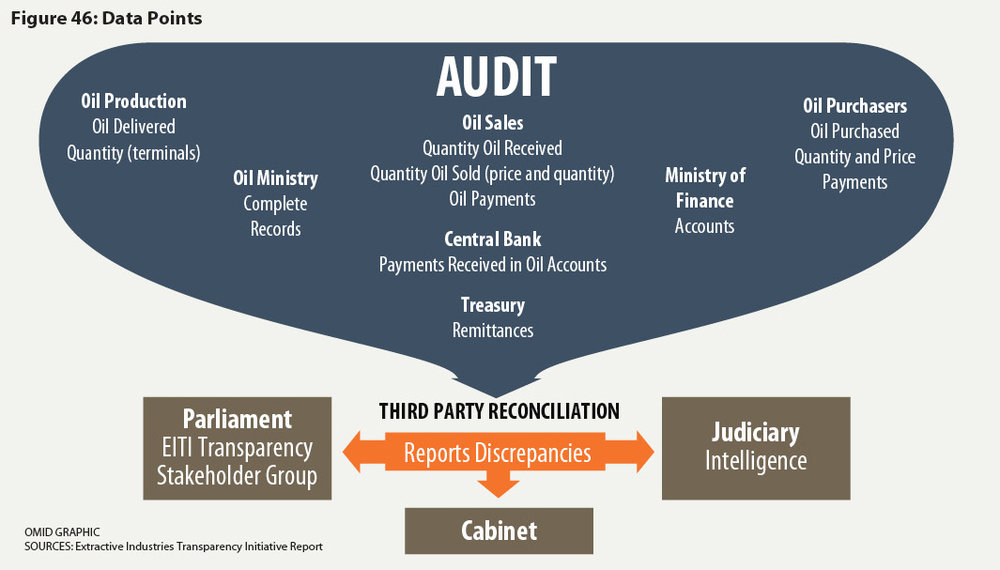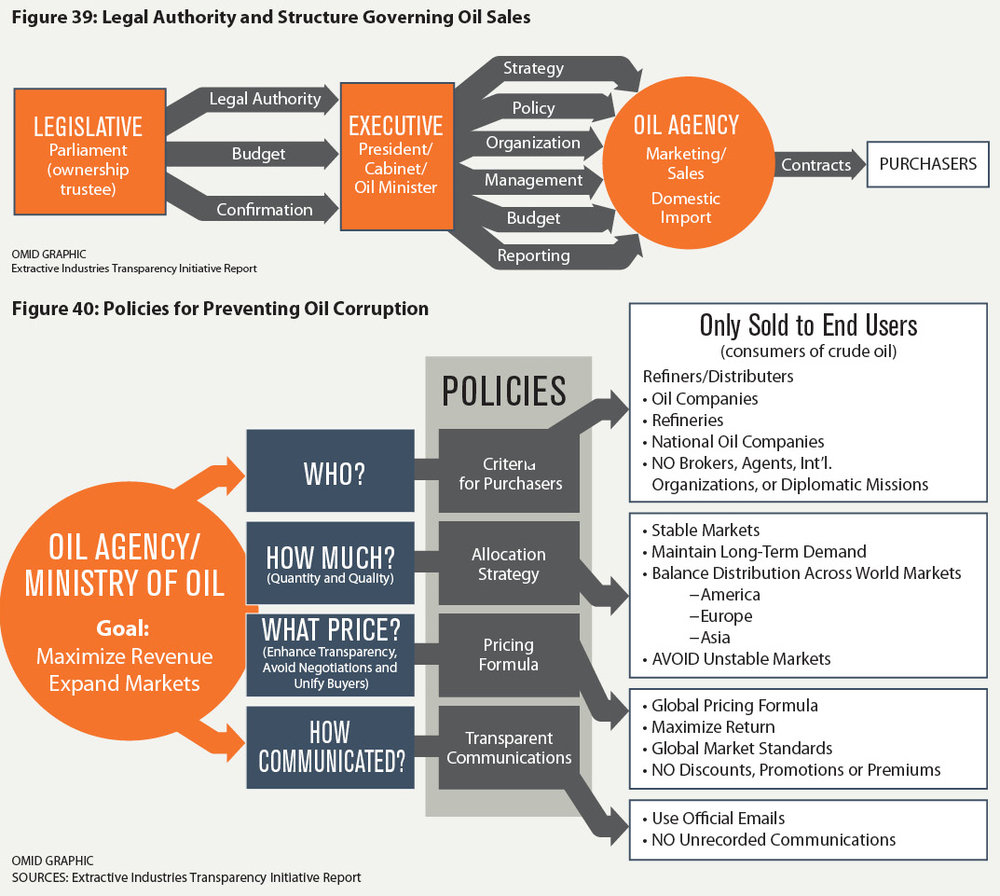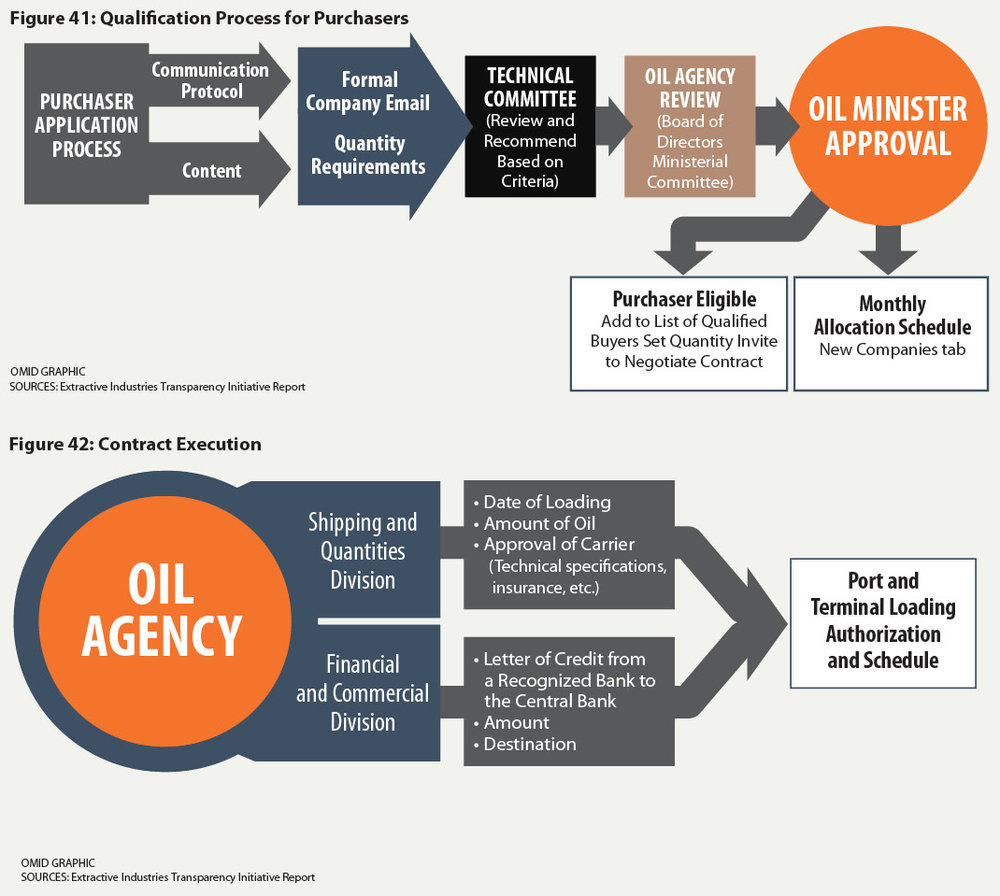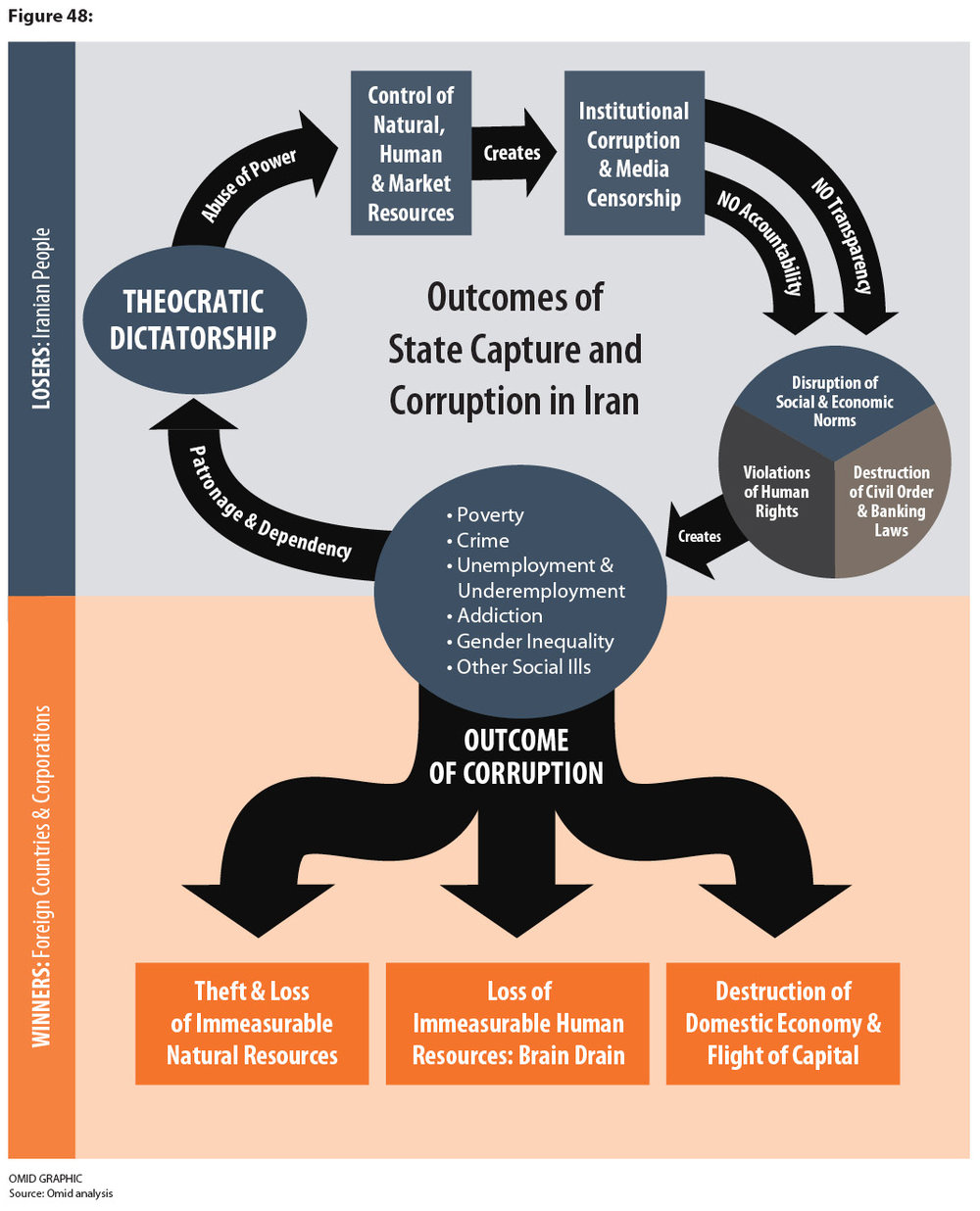The most crucial element in preventing corruption is an audit.
AUDIT
Without an audit, the processes, operations and systems that secure Iran’s oil and gas sector are not subject to legal, fiscal or operational control. Information cannot be traced, operations cannot be tracked, decisions cannot be monitored, performance cannot be managed. Contracts, investments, sales, prices, volumes, shipments, payments all take place in a blackhole. An audit makes it possible to reconcile differences due to error, accidents and instruments as well as take corrective action by reporting corruption to the parliament, judiciary and cabinet.
Photo by Adam Jones, Ph.D./Global Photo Archive/Flickr

Iran has billions in revenue and millions of lives are at stake, yet no audit has taken place. It is not even clear who generates reports and who oversees the production and sale of oil. The Iranian people must not be denied basic and verifiable evidence and information about their oil.
A thorough and independent audit is essential. If Nigeria could do this, why can’t Iran?
There is no excuse. The demand for an audit is neither unreasonable nor treasonous. The Iranian people have a right to have an answer to their question: Where is my oil?

- Further reading: Page 100 of Where Is My Oil? Corruption in Iran's Oil and Gas Sector
THE EXTRACTIVE INDUSTRIES TRANSPARENCY INITIATIVE
It is possible to end corruption in Iran’s oil and gas industry.
To stop corruption will take more than going after individuals caught in wrongdoing. It will take changing the way the industry is run. Where does the theft and loss of Iran’s natural resources and revenues take place? The Extractive Industries Transparency Initiative (EITI), shows the areas where change must take place:

Punishing corrupt individuals without reforming the process that enabled them will never work. The process must be changed to make corruption more difficult. Transparency and accountability are indispensable.
- Further reading: Pages 95-102 of Where Is My Oil? Corruption in Iran's Oil and Gas Sector
A SIMPLE PROCESS
Iran’s oil supply chain is not transparent on purpose.
This means there is no clear correlation between contracts, volumes and prices received for each shipment. This can be easily remedied. The process is not complex.
A process is the first step towards establishing control:
Defining roles and responsibilities
Assigning them to various institutions and jurisdictions
Making sure there are checks and balances
Establishing a system for reporting and monitoring flows of oil, revenue and expenditures, reconciling discrepancies and taking corrective action.
Iran needs a formal application process for oil sales and partnerships. Proposals must be judged on their merits by a technical committee and a ministerial board that is not at the mercy of an arbitrary decision-making based on random criteria.


- Further reading: Pages 95-102 of Where Is My Oil? Corruption in Iran's Oil and Gas Sector
WHO?
Every Iranian has a role to play in reclaiming their oil.
Everyone has a voice and a role to play for a national movement to reclaim Iran’s oil and to have it assume the force and energy it once commanded.
Political Leaders
To be sure, Iran needs leaders who, like Dr. Mohammad Mussadegh and the late Shah, Mohammad Reza Pahlavi, understand the centrality of Iran’s oil and gas sector to the sovereignty, security, and prosperity of the Iranian people.
Intellectuals, Academics and Professionals
Public intellectuals, academics, professionals, technocrats and experts have the duty to formulate the questions, collect the data, commission the reports, perform the audits and communicate the results.
Unions and Associations
All of Iran’s unions and associations have a direct stake in protecting Iran’s oil and gas sector against plunder. Their membership’s bargaining power, wages, purchasing power, pensions are all at stake.
Private Sector
The private sector must assert national sovereignty over the energy sector: questioning the qualifications, reviewing the contracts, monitoring the operations and auditing the books of all entities and individuals operating in the sector.
Religious Leaders
Since the days of the Tobacco Revolt, Iran’s religious leaders, the true and noble ones, have defended the nation’s honor and dignity by serving as the backbone of protest movements against capitulations, concessions and, now, corruption.
Journalists and Artists
Iran’s brave journalists, cartoonists and artists must continue to give a form and face to facts, and breathe emotion and imagination in the battle against corruption.
Civil Society
The public must speak, act, organize and unite as part of a national movement to reclaim our title to Iran’s oil and gas—every drop of oil, every inch of soil, every sale and every cent belongs to the Iranian people.
Public Sector
Government officials and bureaucrats—these managers, engineers, accountants, laborers, bankers and inspectors are not only a bulwark against corruption but the foundation upon which Iran’s oil and gas sector will be rebuilt.
- Further reading: Pages 116-118 of Where Is My Oil? Corruption in Iran's Oil and Gas Sector

HOPE
The time to act is now. It is not too late.
It doesn’t have to be like this.
Assigning them to various institutions and jurisdictions
Corruption can be stopped.
Khamenei and Ahmadinejad’s extremism not only exposed Iran to sanctions, but also facilitated institutionalized theft on a scale that pushed Iran onto the path to becoming another Venezuela. Rouhani’s needs to do more to reform the systemic and structural flaws that have created a climate of corruption. The Iranian people are paying the price. The statistics are devastating.
In 1978, Iran’s GDP per capita stood at $3,969, roughly the same as both Turkey and South Korea. Almost 40 years later, despite Iran’s trillions of dollars in oil wealth, Iran’s per capita income has stagnated. Turkey’s per capita grew by a factor of 2.5, South Korea’s by a factor of 7.
But Iran must not be mired in the “might have been” or “if only.” Things can be changed for the better.
- Further reading: Pages 109-118 of Where Is My Oil? Corruption in Iran's Oil and Gas Sector





